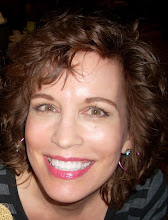After waiting more than the allotted time, the agent reading one of my novels didn't want it. Sigh.
I understand the process: if they liked the query then it's a good story idea, if they liked the first three chapters then you can write, if they want to read the whole book it means they are considering if they can sell it.
"Good" and "selling" are two different things.
I get this is a business thing, and not a right cross punch to my writing or my book. I also know it's an honor to have been read by this woman; she represents famous people.
I know all of that. But I was still bummed. For about an hour. Ok, really upset for an hour and pouty all evening. Next morning I resumed my agent search. I had another group of queries all ready to go. I’ve learned from past experience that a Bad News Plan is empowering.
So I’m back on track. Done sniveling. I understand what happened. Yet I still went down the “I’m no good” route and even descended, if only for a few minutes, into the "I quit mode.”
Why would I do that? I think it’s because I hadn’t thought of agents as working stiffs like the rest of us.
In my former life I was a corporate psychologist. I worked with a partner most of the time, usually they were male. This worked out rather nicely, because some clients have a gender preference. But there was more to it than that. Sometimes a client and I just didn’t click. Didn’t mean there was anything wrong with the client…or me. We just didn’t fit. My partner and I regularly “exchanged” people.
I knew right away if I could help someone. But just in case I was wrong, I met them more than once. Most of the time my first impression proved correct. By the end of my career I could usually tell if I could work with someone in about five minutes.
Longer than it takes, no doubt, for an agent to decide if he or she believes my book is sellable.
So why, after reading chapters, would an agent ask to read the whole thing? Can’t they tell immediately? I think they do know right away when something hits them as sellable. However, agents, like anyone else, need to have a stocked work queue. And like me seeing a client more than once just to make sure, a good agent needs to test instincts once in awhile.
So Ms. Agent is sent something a bit outside of what she thinks she might sell. She asks to read the entire manuscript and makes a few phone calls. No one she knows wants it.
Bottom line is, it doesn’t matter if she likes it. She has to sell it. And if she doesn’t know anyone who would buy it, then why in the world would she take it?
The key phrase here is
no one she knows would probably buy it. Agents, like writers, specialize. They have to in today’s competitive market. But…just because she doesn’t know anyone who would buy it, doesn’t mean another agent wouldn’t.
She wasn’t the right agent for me. But there’s one out there. And um,
now would be a good time for you to make yourself known, OK?
:-)






